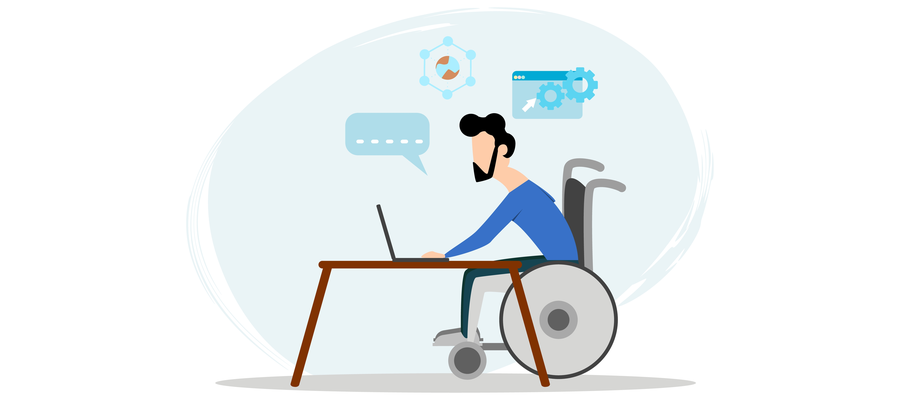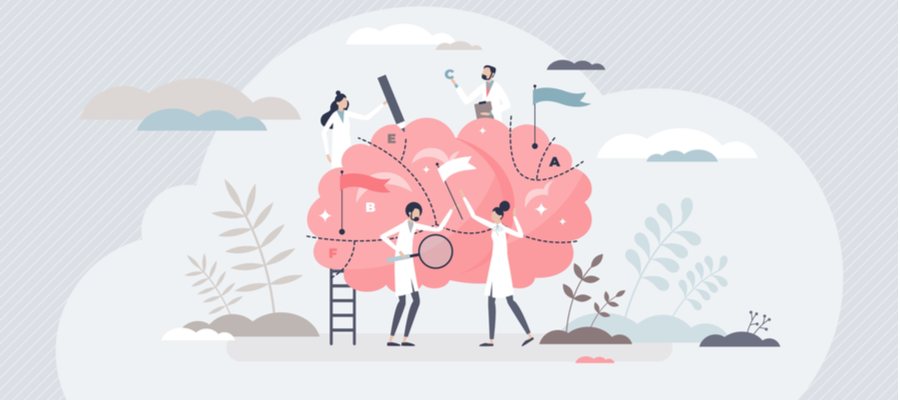In a world where the boundaries of knowledge are constantly expanding, staying ahead of the curve is not just an option, it’s a necessity.
Delve into the fascinating intersection of educational technologies, workplace transformation, upskilling, reskilling, neuroscience, artificial intelligence, virtual reality, and the vast universe of learning.
The Learner and The Feeling of Self-Efficacy
The importance of self-efficacy can be summarized by saying that if you don't believe you have what it takes to achieve your goals, you are unlikely to succeed... More relevant than ever and used in many fields, this theory is also applied in education. Here's what every teacher needs to know about self-efficacy in the context of learning and what they can do to foster it in their learners.
The Teacher in The Past, Present and Future Tense: Test Your Knowledge!
Do you have any idea what the teacher of the future will look like? Do you know how technology may surpass the teacher? Can you distinguish between the roles of coach, tutor and mentor? Do you know of any historical teacher role models who can inspire a redefinition of the profession? Finally, can you tell if personal characteristics that may seem trivial are actually assets to being a good teacher?
Rest and Recuperate Smartly
We talk less about the importance of taking time off work than we do about eating well or being physically active. Our demanding lives and the performance culture we struggle to break away from mean that we too often ignore our signs of fatigue and persist as best as possible in our daily activities, whether we are workers or students. Difficulty concentrating, lack of motivation and mental wandering are part of our normality... However, numerous studies that have examined the consequences of depriving ourselves of rest and vacation time indicate that we put our mental and physical health at risk by ignoring these necessary periods of disconnection.
First Digital Profile of Quebecers with Disabilities
For the first time, the NETendances survey, which draws up a digital profile of Quebecers each year, focused on adults with disabilities. The notion of disability used in this context included any difficulty of a hearing, visual, cognitive, physical or psychological nature as well as any other long-term health problem. Of the 12,000 Quebecers aged 18 and over interviewed for the full survey, 3,743 had at least one of these difficulties.
[INFOGRAPHIC] 10 Contributions of Neuroscience to Education
Neuroscience has given us privileged access to the brain for the past thirty years. With the help of sophisticated equipment, including brain imaging, they have allowed us to decode our brains better and understand specific issues, including some related to learning. Although this discipline alone cannot guide us in education, its influence has become essential. Here are ten fields of action in which its contribution should be followed!
Universal Design Principles and Their Application in Education
It is vital to fully understand that integrating accessibility principles in online learning is not an easy fix; it requires proper modelling. Furthermore, accessible instruction does not simply consist of telling professors what accessibility is and expect them to do it all on their own; it is about inclusion and the benefits it can bring to all students in a class.
Cheating, Uncertainty and Humour in The Classroom: Test Your Knowledge!
Do you know the most effective ways to counteract student cheating? Do you know what factors most encourage students to cheat, depending on whether they are in elementary, high school or university? Do you have an idea of the best strategy for dealing with uncertainty? Do you know how learners and teachers perceive humour in the classroom and what principles teachers should follow to make good use of it?
Democratizing Higher Education Through Online Course Delivery
Higher education is a luxury that’s not available to everyone, or, at least, it is a luxury that is more available to some than others. And although financial limitation is certainly an inhibitor, it is not the only one. Think, for example, of the cultural acclimation an international student might experience if they were to relocate to, say, Montreal for their post-secondary studies.
3 Ages of the Brain Under the Microscope of Neuroscience
Over the last few decades, neuroscience has begun to confirm or refute certain hypotheses we had about how the brain works, in addition to leading us down new paths of knowledge. Given the complexity of this fascinating organ, we are only at the beginning of this promising exploration. However, thanks to brain imaging, we know a little more about some of its particularities at different stages of life and their links with learning.
Are You Languishing or Flowing?
The recent publication of a New York Times article brought a bit more light into this well-known feeling that lingers through some of these days: Languishing. According to the author Adam Grant, "languishing is a sense of stagnation and emptiness. It feels as if you're muddling through your days, looking at your life through a foggy windshield. And it might be the dominant emotion of 2021."










